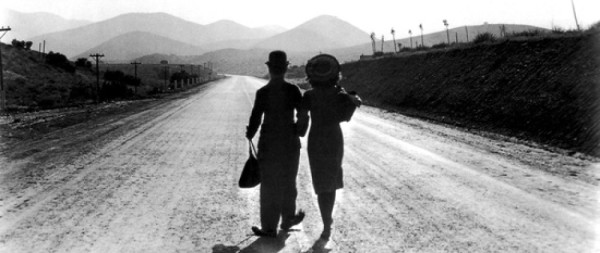Blazing Saddles
Directed by Mel Brooks
Written by Mel Brooks, Andrew Bergman, Richard Pryor etc. etc.
1974/US
IMDb page
Repeat viewing/Amazon Prime rental
One of 1001 Movies You Must See Before You Die
Jim: [consoling Bart, who is upset that his attempts to be cordial with the citizens of Rock Ridge led to him being racially insulted] What did you expect? “Welcome, sonny”? “Make yourself at home”? “Marry my daughter”? You’ve got to remember that these are just simple farmers. These are people of the land. The common clay of the new West. You know… morons.
Not politically correct, but very funny.
The tale takes place in 1874. Bart (Cleavon Little) is working on a chain gang laying railroad tracks. He is sent to investigate some quicksand up ahead, of course falling into it with a buddy. Soon he is standing in line to be hung. The railroad will have to be shifted and is now slated to go through the town of Rock Ridge. Evil political hack Hedley Lamarr (Harvey Korman) decides the best way to lower property values in Rock Ridge would be to send the town a Black sheriff. Thus Bart is spared and heads to Rock Ridge.
Bart sets himself up in the jail and meets ex-sharpshooter “Waco Kid” Jim (Gene Wilder) who is now a common drunk. But the two become friends and allies and Jim sobers up. It’s the two of them against the whole racist town. But Bart has unusual smarts and is determined to do his job and protect the town. Hedley hires saloon singer Lili von Shtupp (Madeline Kahn) to seduce Bart and find out what he’s up to. This has the opposite effect and now Hedley has three foes instead of two.

Bart and Jim cook up an elaborate plan to build a replica of Rock Creek and lure the bad guys to the wrong town. After an epic brawl, the fourth wall is breached and the fight takes over the Warner Bros. lot. With Slim Pickins as the railroad foreman and Mel Brooks in a double role as randy Governor Le Petomane and another as an Indian Chief.

This movie seems to have grown on me over the years. It is chock full of bad puns, fart jokes, double entendres, and physical humor. Brooks got the final cut on the picture and left every outrageous bit in. For example, the movie ends with a huge pie fight. Some of it is kind of juvenile but mostly it’s a laugh a minute. Recommended

 (Jeder für sich und Gott gegen alle = Every man for himself and God against all)
(Jeder für sich und Gott gegen alle = Every man for himself and God against all)











 The relationship is condemned and mocked by virtually everyone including: Emmi’s neighbors, her co-workers, her children, local shopkeepers, and Ali’s co-workers. Emmi is frequently referred to an an “old whore”. The landlord threatens to evict Emmi for “subletting” her apartment. So the couple marries. Emmi’s children disown their mother. Things get so bad that the couple takes an out of town trip. When they return they find that attitudes have changed. Can this relationship survive? With director Fassbinder as Emmi’s son-in-law, Irm Hermann as her daughter, and Barbara Valentin as the bar owner.
The relationship is condemned and mocked by virtually everyone including: Emmi’s neighbors, her co-workers, her children, local shopkeepers, and Ali’s co-workers. Emmi is frequently referred to an an “old whore”. The landlord threatens to evict Emmi for “subletting” her apartment. So the couple marries. Emmi’s children disown their mother. Things get so bad that the couple takes an out of town trip. When they return they find that attitudes have changed. Can this relationship survive? With director Fassbinder as Emmi’s son-in-law, Irm Hermann as her daughter, and Barbara Valentin as the bar owner.





 Finally Philip’s publisher cuts off his financing. He has very little money of his own and has to go back to Germany. But when he arrives at JFK airport he finds out that German air traffic controllers are on strike and his next opportunity would be the next day on a flight to Amsterdam. While at the counter, he helps a young mother who does not speak English. She is in a hurry to get back home with nine-year-old Alice (Yella Röttlander) after a break up. The three become friendly and spend the time until the next morning together. Then mom leaves Alice with Philip while she goes out. Alice wants to go sightseeing, something Philip seems never to have considered, so they do.
Finally Philip’s publisher cuts off his financing. He has very little money of his own and has to go back to Germany. But when he arrives at JFK airport he finds out that German air traffic controllers are on strike and his next opportunity would be the next day on a flight to Amsterdam. While at the counter, he helps a young mother who does not speak English. She is in a hurry to get back home with nine-year-old Alice (Yella Röttlander) after a break up. The three become friendly and spend the time until the next morning together. Then mom leaves Alice with Philip while she goes out. Alice wants to go sightseeing, something Philip seems never to have considered, so they do.












